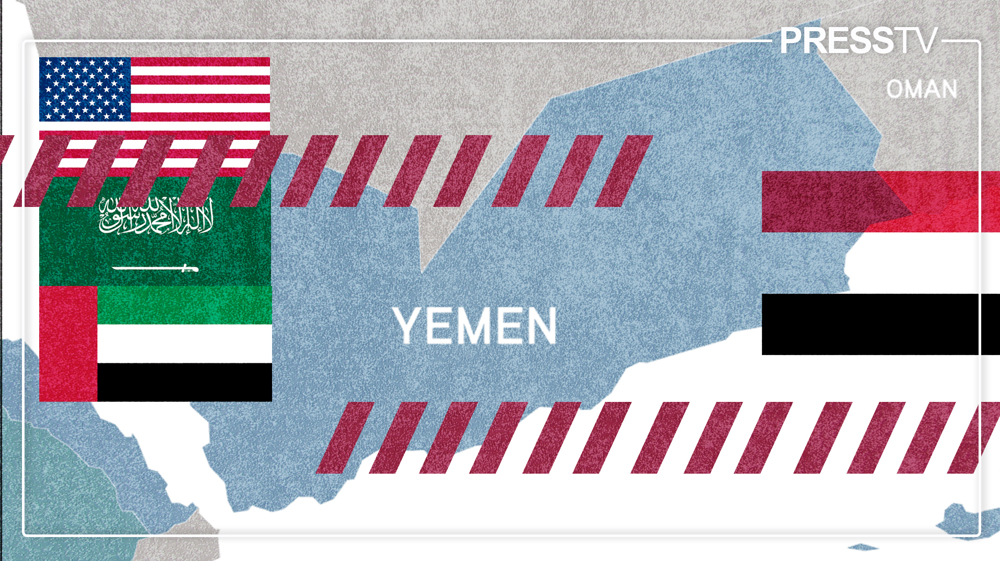Has Niger coup ended French uranium looting, US meddling?
By Reza Javadi
The growing crisis across Niger and the military coup against President Mohamed Bazoum by his own presidential guards seems to be turning the tables for the West as France and the US may not have their prior advantages in the West African nation.
Apart from putting the president under house arrest in the presidential palace in the capital, Niamey, the oil and mining ministers, along with the interior minister, and the transport minister were also arrested, according to Bazoum’s PNDS party.
Nigerian Guard chief General Abdourahamane Tchiani has declared himself as the leader of the African country, with the military junta calling itself the National Council for the Safeguarding of the Fatherland.
Following these developments, thousands of Nigeriens took to the streets on Sunday in support of the coup, many carrying Russian flags. Niger’s political orientation which used to act in favor of the West, now is orienting towards Russia thanks to the junta.
Coup in Niger raises concerns for West
Bazoum’s withdrawal from power has raised concerns in the US and Europe, especially in France, over imports of uranium to the French power nuclear plants, as the West African country is the provider of 15 percent of France’s uranium needs.
Niger also accounts for a fifth of the EU’s total uranium imports, and according to the Supply Agency of the European Atomic Energy Community (EURATOM), Niger was the EU's top uranium supplier in 2021.
According to energy experts, the coup in Niger could pose a serious challenge for Europe in the longer term, as the continent is claiming to phase out dependency on Russia as another top supplier of uranium for the EU.
Accordingly, tensions in Niger could change the table for Russia, first because Bazoum – who was a staunch ally of the West - is out of power and second, because it may discourage the EU from adopting sanctions against Russia in the nuclear sector, according to Phuc-Vinh Nguyen, an energy expert at the Jacques Delors Institute in Paris.
"It could have consequences at the EU level. Uranium — and nuclear power in general — is still not subject to sanctions. If the situation in Niger gets worse, this would certainly complicate the adoption of sanctions on Russian uranium in the short term," Nguyen said.
Niger’s uranium: Blessing for West, catastrophe for Nigerians
Western countries’ nuclear activities across Niger have had deteriorating health effects on the people of the impoverished country.
For instance, in 2021, the closure of the Cominak mines, run by the French nuclear company Orano, left the local population to live with 20 million tones of radioactive mud on the mine’s site, according to the French-based Independent Research and Information Commission on Radioactivity (CRIIRAD).
According to CRIIRAD’s findings, the level of radioactivity was 450,000 Becquerels per kilo, well above the internationally recommended levels of radiation. Exposure to these dangerously high levels of radiation causes birth defects, cancer, and a number of other disorders.
“The waste produces a radioactive gas known as radon. The strong wind of the desert spreads a radioactive dust which is then inhaled by the surrounding population,” said CRIIRAD’s scientist, Bruno Chareyron.
“The waste will be radioactive for hundreds of thousands of years,” said Chareyron, as cited by the RFI. “Orano should have sealed it off on a secure site, but this was not done.”
The nuclear activities - through the 47 years of producing uranium for the French – have also contaminated soil and underground water. The 100,000 people living in the area have no alternative but to keep on drinking that water.
“Our heritage is an enduring pollution," Al Moustapha Al Hacen, founder of the local environment protection NGO Aghir in’Man, said, as cited by the RFI. “There is no wildlife left, nor any plants alive around Arlit.”
The uranium mining was supposed to help fight poverty, “but what has happened is that our problems have only worsened," he added.
Niger is one of the world’s poorest countries and at the same time the world’s fifth-largest uranium producer.
Ousted government ‘authorized French attack’: Niger Junta
Niger’s putschists have warned over a potential attack by the French forces to free the ousted president Bazoum from the presidential palace.
Colonel Amadou Abdramane, one of Niger’s coup plotters, has claimed that the Foreign Ministry of the toppled government had authorized France to carry out an attack on the presidential palace as the French interests and uranium producing in the West African country might be in danger under the military ruling.
“In its search for ways and means to intervene militarily in Niger, France with the complicity of some Nigeriens held a meeting with the chief of staff of the Nigerien national guard to obtain the necessary political and military authorization,” the putschists announced on national television.
In spite of the French Foreign Ministry’s rejection of the allegation, President Emmanuel Macron has promised “immediate and uncompromising” action if French citizens or interests were subject to attack.
Meanwhile, in a joint statement on Wednesday, the military governments of Mali and Burkina Faso said that "any military intervention against Niger will be considered as a declaration of war against Burkina Faso and Mali.”
In a separate development, Italy's foreign minister Antonio Tajani warned against any military intervention by the West in Niger and depicted it as a "new colonization."
“I think we must put pressure on democracy to be restored, but any Western military initiative should be excluded because it would be seen as a new colonization,” Tajani said.
West condemns coup, Africa supports military government in Niger
The US and the European countries, whose interests are in danger while Bazoum is out of power, have strongly condemned the military coup in Niger, while African countries such as Mali and Burkinafaso have expressed support to Niger’s military.
France, the former colonial power in Niger, announced on Saturday it was cutting all development aid to the country and called for Bazoum to be returned to office.
US Secretary of State Antony Blinken has also expressed “unwavering support” to Niger's ousted President Bazoum.
Furthermore, the Economic Community of West African States (ECOWAS) slapped travel and economic sanctions against Niger, warning that it would use force if the coupesters give the power back within one week.
On the other side of the ledger, the two African countries of Mali and Burkina Faso expressed their solidarity with Nigerien authorities, denouncing the ECOWAS economic sanctions as “illegal, illegitimate and inhumane” and refused to apply them.
They have also threatened to withdraw their ECOWAS membership and rise up in support of Niger's military government if the Western powers intervene in the West African country’s internal affairs militarily.
West evacuates nationals from Niger as US maintains forces
Despite the evacuations of nationals by several European countries, the US has announced that it is maintaining its forces in the African country.
The US has around 1,000 military forces in Niger, where it’s also spent $100 million building a drone base during the course of the so-called “war on terror.”
Hitherto, the Biden administration has refused to call the detention of the former president as an act of coup, because otherwise, it would have to evacuate its nationals from the West African country.
The Pentagon's chief spokesman General Pat Ryder claimed on Tuesday that there is no security threat to American troops or citizens in Niger, justifying their presence in the impoverished nation, despite other European countries' evacuation of forces.
French Defense Minister Sebastien Lecornu announced on Thursday that his government has concluded the evacuation operations from Niger, with a total of 1,079 people flown out of the African country.
The initial flights to Paris carried also other European nationals from Portugal, Belgium, Germany, and Austria.
An Italian military plane also carried dozens of its nationals to Rome early on Wednesday, as Spain also announced plans to evacuate its nationals from the African country.
Niger has had a turbulent political history since gaining independence in 1960. There have been four coups and numerous other attempts, prior to last week’s coup by the military junta.

Yemen vows payback as Saudis, Emiratis whisper dirty US plots in the dark

'War is defeat': Pope Francis will be remembered for his moral stand on Gaza

Gaza’s slow death: How aid blockade has pushed Palestinians to the brink
‘Foremost priority’: Iran says ‘ready’ to forge greater understanding between Pakistan, India
Ukraine may have to 'give up land' to Russia to secure peace: Kiev mayor
VIDEO | UN blasts Israeli settler deadly violence as settlers storm West Bank town, desecrate shrines
Lebanese parliament speaker rejects disarmament of Hezbollah amid Israeli aggression
China supports Iran’s peaceful nuclear program, diplomatic engagement: Envoy
Yemen vows payback as Saudis, Emiratis whisper dirty US plots in the dark
Oil Minister Paknejad: Russia to build nuclear plant in Iran with own funds
UAE deploys radar in Somalia to monitor Yemen’s anti-Israel strikes







 This makes it easy to access the Press TV website
This makes it easy to access the Press TV website